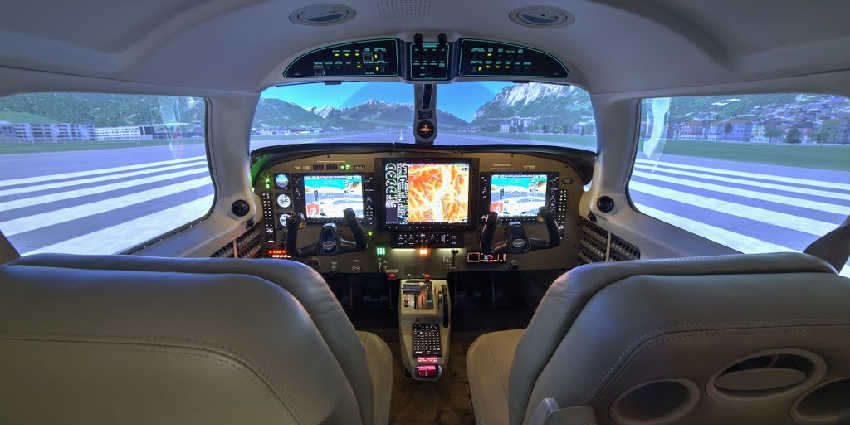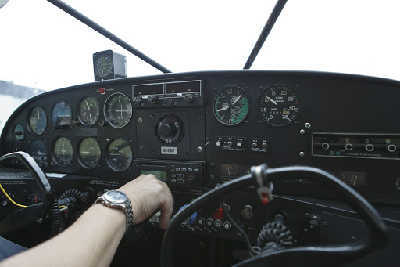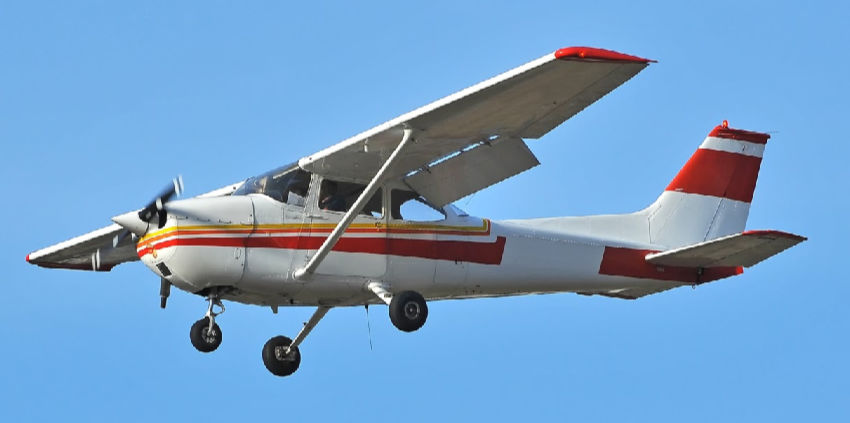For local resources,
choose a city page in Alabama:

VA Approved Flight Schools in Alabama
Veterans, with a passion for flying, know they can soar into the wild blue yonder with extended benefits through the GI Bill 2.0 as part of the Post 911 Veterans Educational Assistance Improvements Act of 2010. Previously, vocational and VA approved flight schools in Alabama were not covered, but as of October 1, 2011, such training is covered.
Regardless of your VA benefits, your Private Pilot's license is required as the first step in your pilot training. In the case of VA approved flight schools in Alabama, those costs will run you about $12,000, no matter where you go for flight training, whether it is a "VA-approved" (Part 141)" flight school or to a flight school that is Part 61 school in that is not VA approved. Regarding VA approved Part 61 flight training, the VA will not help you with any of those costs associated with a Private Pilot License. So your decision on where you go for your initial Private Pilot training should be based on the top school available in Alabama, your VA benefits, and whether your school of choice in Alabama is "VA-approved."
 Call Aviation Schools Online and let our experts help you figure out what schools in Alabama are VA approved, and what schools are not. If you are veteran living in Alabama, let us help you to find the information you need about your VA benefits eligibility.
Call Aviation Schools Online and let our experts help you figure out what schools in Alabama are VA approved, and what schools are not. If you are veteran living in Alabama, let us help you to find the information you need about your VA benefits eligibility.
VA Approved Flight Training in Alabama
If a flying helicopter is your dream, you are in the right place. Learn to fly today. Let us help you find a school that is safe, thorough, and professional - preparing you for an aviation career flying in Alabama. The best VA approved flight training schools in Alabama are FAA certified as a Part 141 flight schools.
- Private Pilot (Part 141, Part 61)
- Instrument (Part 141, Part 61)
- Commercial (Part 141, Part 61)
- CFI (Part 141, Part 61)
- CFII (Part 141, Part 61)
- ATP (Part 141, Part 61)
- Add-Ons: Private, Instrument, Commercial, ATP (Part 141, Part 61)
Post 9 11 GI Bill: Dependents are Eligible
If you're the spouse or child of a veteran eligible for Post 9 11 GI Bill benefits, you can get help paying for the education you've always dreamed of!
As of August 1, 2009, service members enrolled in this program can transfer any unused benefits to their immediate dependents, who can then use the money to receive an education at an accredited school of their choice. The Transfer of Post 9 11 GI Bill benefits to dependents (TEB) is a real boon for veterans who may not need to further their own educations but who wish to help their college-aged children get flight training, bachelor's degrees, and any number of other career-enhancing certifications.
What Does the Post 9-11 Cover For Flight Training in Alabama?
The United States Department of Veterans Affairs under the Post-9 11 GI Bill covers the lesser of the amounts (of $10,000) between actual net in-state tuition costs and the fees charged by flight schools in Alabama.
Other Department of Veterans Affairs programs already covering flight-related training includes the Montgomery GI Bill Active Duty and Veterans Educational Assistance Program. Veterans from Alabama are urged to check with the U.S. Department of Veterans Affairs to ensure that the flight school they chose is VA approved and meets VA qualifications prior to enrollment.
Right now VA-approved flight schools are eligible for reimbursement through the Montgomery GI Bill.  Veterans enrolling in flight training near Alabamawill be able to receive direct payment through the Post-9 11 GI Bill. It is recommended that veterans who choose to pursue flight training attain a VA Certificate of Eligibility to determine how much military education benefits they may receive to put towards flight training in Alabama.
Veterans enrolling in flight training near Alabamawill be able to receive direct payment through the Post-9 11 GI Bill. It is recommended that veterans who choose to pursue flight training attain a VA Certificate of Eligibility to determine how much military education benefits they may receive to put towards flight training in Alabama.
Regardless of VA reimbursement, veterans are responsible for fees associated with flight training programs. Veterans who successfully complete an aviation training program will be a part of a growing selection of career opportunities.
Flight-related careers are expected to show at least a 12% growth through 2022 according to the US Bureau of Labor statistics. Job opportunities may include air cargo carriers, regional airlines, air taxis, and low-cost carriers.
While college degrees and commercial pilot licenses are required for most flight-related jobs, military pilots have an advantage in the face of tough competition. Pilots can also start their professional flight careers working as flight instructors.
This allows for the accumulation of flight hours and additional experience that will make veterans pursuing aviation careers more attractive for lucrative jobs with commercial airlines in Alabama.
The average wage for commercial pilots can range from approximately $73,000 to $117,000, depending on experience and specific flight-related jobs. Veterans from Alabama can get more information on the Post-9 11 GI Bill at military.com or through the Department of Veterans Affairs.

The FAA World From The Perspective of Air Traffic
At any given moment there are approximately 5,000 aircraft traversing the U.S. skies. The FAA is a year-round, 24/7 operation, responsible for 5.3 million square miles of U.S. domestic airspace and 24 million square miles of U.S. airspace over the oceans. There are 43,290 average daily flights in and out of the U.S. More than 14,000 air traffic controllers manage traffic from many of the FAA’s 700 facilities. Fifty-five hundred airway transportation system specialists maintain more than 70,000 pieces of equipment. Aviation contributes $1.6 trillion annually to the U.S. economy and constitutes 5.1 percent of the gross domestic product. Aviation generates 10 million jobs in the U.S. annually.
Fixed-Wing Aircraft Factoid Landing Gear
The landing gear supports the aircraft during landing and while it is on the ground. Simple aircraft that fly at low speeds generally have fixed gear. This means the gear is stationary and does not retract for flight. Faster, more complex aircraft have retractable landing gear. After takeoff, the landing gear is retracted into the fuselage or wings and out of the airstream. This is important because extended gear create significant parasite drag which reduces performance.




